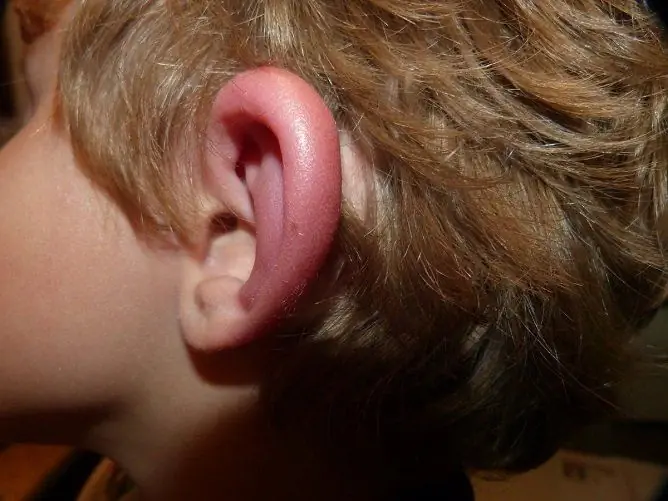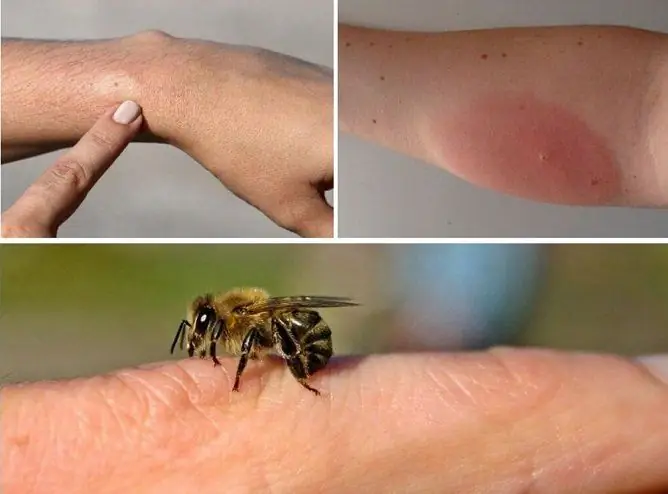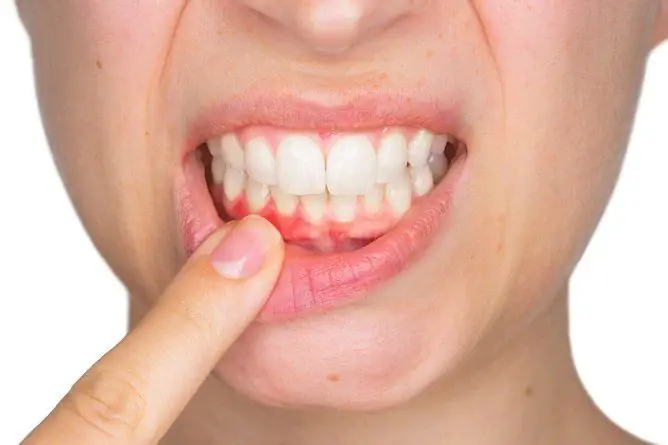- Author Rachel Wainwright wainwright@abchealthonline.com.
- Public 2023-12-15 07:39.
- Last modified 2025-11-02 20:14.
Edema of the labia: causes, treatment, prevention, prognosis
The content of the article:
- The reasons
- Symptoms
- Diagnostics
- Treatment
- How to relieve swelling with folk remedies
- Prevention
- Forecast
- Video
Edema of the labia is one of the most common complaints with which patients come to see a gynecologist. Even more women with soft tissue swelling in the perineal region do not seek medical help, preferring to cope with this problem on their own, not considering it serious and dangerous. Let's see why the labia can swell and what to do in this situation.

Edema of the labia does not always require special treatment, but in order to exclude serious diseases, a medical examination is necessary
The reasons
Puffiness of the labia is not an independent nosological unit, but develops as a symptom of various diseases:
- vulvitis is an inflammatory process localized in the area of the external genital organs (the vestibule of the vagina, clitoris, labia minora and majora);
- bartholinitis - inflammation of the bartholin glands located near the entrance to the vagina;
- vaginitis - inflammation of the vaginal walls;
- vulvodynia is a pathological condition that can be caused by the haphazard intake of antibacterial drugs or a long course of candidiasis
The external genital organs can also swell under the influence of other reasons:
- diseases of the endocrine, urinary and cardiovascular systems;
- pregnancy;
- allergic reactions to intimate hygiene products (this reason is currently very common);
- condition after surgery on the organs of the perineum;
- varicose veins of the pelvic organs;
- non-compliance with the rules of personal hygiene;
- wearing underwear that is too tight or made of low-quality synthetic materials;
- sexual contact (during sex, blood flows to the genitals, which causes swelling of the labia minora).
Symptoms
Edema of the labia is usually combined with other clinical signs:
| Disease | The reasons | Clinical picture |
| Vulvitis, vaginitis, bartholinitis | Pathogens can be pathogenic staphylococci and streptococci, Escherichia coli, gonococci, ureaplasma, chlamydia, Trichomonas, mycoplasma, herpes virus | Pain in the lower abdomen, cramps and burning at the time of urination, the appearance of pathological discharge from the vagina, differing in nature, consistency, color and smell |
| Allergic vulvovaginitis | Allergic reaction to various personal hygiene products, washing powder | Puffiness of the vulvar tissues, redness of the mucous membranes, burning, itching (not only the labia, but also other parts of the body can itch) |
| Some somatic diseases | Chronic heart failure, renal failure |
Swelling is noted not only of the external genital organs, but also of the arms, legs, and in severe cases, the accumulation of fluid in the body cavities (pleural, abdominal, between the sheets of the pericardium) |
| Varicose veins of the pelvic organs | Insufficiency of the valve apparatus of the veins, various obstacles to the outflow of blood from the lower half of the body, for example, compression of blood vessels by a tumor | A feeling of heaviness, bursting pain in the lower abdomen and external genitals |
| Pregnancy | Increased uterine blood flow, compression of veins by an enlarged uterus | The increased blood flow to the genitals and the difficulty of its outflow cause swelling of the vulvar tissues, the appearance of their cyanotic shade |
Diagnostics
Since swelling of the external genital organs is an external manifestation of a number of gynecological and extragenital diseases, a comprehensive examination of the patient is necessary for their diagnosis. It includes:
- bimanual vaginal examination and examination of the cervix in the mirrors;
- general and biochemical blood test;
- general urine analysis;
- microscopy of a smear of vaginal discharge;
- bacteriological examination of vaginal discharge.
If indicated, a woman is referred for consultation to other narrow specialists (endocrinologist, nephrologist, cardiologist).
Treatment
What to do if the labia is swollen depends on the cause of the condition:
- For inflammatory diseases, antibacterial drugs are prescribed, and for candidiasis, antifungal drugs are prescribed. Until the acute inflammation subsides, sexual activity is contraindicated.
- In case of endocrine pathologies, first of all, it is necessary to achieve the normalization of the hormonal background.
- With allergic vulvovaginitis, antihistamine therapy is performed.
Swelling of the labia that occurs immediately after coitus or in pregnant women does not require therapy.
How to relieve swelling with folk remedies
It is sometimes possible to cope with puffiness and itching of the external genital organs with the help of traditional medicine methods. As practice shows, sedentary baths with decoctions of medicinal herbs that have antiseptic, anti-inflammatory, anti-edematous effects help effectively relieve itching and swelling:
- sage;
- pharmacy chamomile;
- calendula;
- succession.

Sitting baths with herbal decoctions can help eliminate swelling and itching of the genitals.
Before using alternative methods to eliminate the swelling of the vulvar tissues, you should consult your doctor. It must be remembered that any medicinal raw material can cause allergic reactions in people with hypersensitivity. As a result, the medicinal decoction will not only not relieve puffiness, but, on the contrary, can provoke its intensification, cause irritation of the mucous membrane, provoke itching and burning.
Prevention
Vulvar swelling can be prevented by observing the following rules:
- Follow the rules of personal hygiene carefully.
- Refuse promiscuous sexual intercourse.
- Wear quality underwear of an appropriate size.
- Allergy-prone women should choose hypoallergenic hygiene products.
- Use moisturizing gels for vaginal dryness.
- Use only disposable razors to shave the bikini area and treat even small cuts with disinfectant solutions (hydrogen peroxide, alcohol).
- Visit a gynecologist regularly and treat any gynecological diseases in a timely manner.
Forecast
The prognosis for puffiness of the labia is determined by the underlying pathology. It is favorable in the case of gynecological and allergic diseases, and quite serious in cases where the swelling of the vulva is due to severe diabetes, heart or kidney failure.
Video
We offer for viewing a video on the topic of the article.

Elena Minkina Doctor anesthesiologist-resuscitator About the author
Education: graduated from the Tashkent State Medical Institute, specializing in general medicine in 1991. Repeatedly passed refresher courses.
Work experience: anesthesiologist-resuscitator of the city maternity complex, resuscitator of the hemodialysis department.
Found a mistake in the text? Select it and press Ctrl + Enter.






